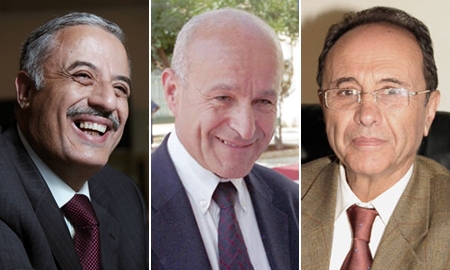It is often said that numbers do not lie, but in the case of Algeria, numbers do not fully represent the reality. For instance, the Heritage Foundation’s Index of Economic Freedom has ranked the country 14th among the 17 countries in the Middle East and North African region, and 140th globally. Similarly, the World Bank’s Doing Business survey puts Algeria at 148th place out of 183 countries. While these figures present a bleak outlook on Algeria’s business climate, what they do not do is take into consideration the country’s recent history, hurdles and developments.
Ahmed Tibaoui, General Manager of the World Trade Center Algeria, is blunt yet optimistic: “I think that [the ratings are] a bit exaggerated. We should be classed better than that, because we are coming back from far behind: our economy was an administered economy, managed by the government until the end of the 1980s. It started to open up in 1998 with new laws and access to the private sector and market economy.”
“in less than 30 years, algeria can become a pivotal, wealthy country, which could maybe join the brics in the next 20 years.” Ahmed Tibaoui,
General Manager of the World Trade Center, Algeria
---------------------------------------
“of the value we create, 59% goes to the state budget, 40% is reinvested and we distribute 1% to the Algerian people.” Issad Rebrab,
President of the
Cevital Group
---------------------------------------
“Algerian businesses are driven by dynamic, extremely ambitious business leaders.” Reda Hamiani,
President of the Business
Leaders Forum (FCE) |
Reda Hamiani, President of the Business Leaders Forum (FCE), recalls how the administration of former president Ben Bella had opted for a socialist regime, “a kind of regime that did not allow private initiative to be realized. Because at that time, this was a third world country and the people thought that the engine of development and growth was not to be carried by the private sector… In my opinion it was a mistake,” he says. “The state was chief, regulator, sponsor and protector, and therefore although the private sector was tolerated, it was in fact marginalized. Banks didn’t lend money to the private sector. It was very difficult to obtain land.”
This system lasted for nearly 30 years, which is in Mr. Hamiani’s words, “why it is difficult to turn 180 degrees now.”
In addition, once the economy was opened up in the late 1990s, a series of unfortunate events overshadowed this vital move and posed ever more challenges. The civil war (1991-2002) was detrimental not only to the economy, but to the country’s reputation as well. Algeria’s dinar began to devalue and, because almost all raw materials used in local factories were imported, production became more expensive.
Mr. Tibaoui says that a lag in local production was compounded by new regulation. “Due to the agreement we had with the IMF, we opened our foreign trade, which had been under the governance of the state in the past. We were obliged to open up, and foreign producers with cheaper products of very good quality started to enter the market. Public companies then accumulated huge stocks of merchandise that they could not sell.”
In the mid to late 1990s, private enterprises that had launched projects struggled to pay their loans to the banks.
By 1998, the government initiated a privatization plan and began selling its companies to the employees and eventually to investors. Foreigners were not yet interested, given the recent turbulence; however, as more reputable local investors – such as SIM and the Cevital Group – bought shares of public companies, a growing sign of confidence was being sent out and eventually foreign investors began to take notice.
Today, although the private sector still faces many bureaucratic challenges, it has no shortage of willpower. As Mr. Hamiani puts it: “Algerian businesses are driven by dynamic, extremely ambitious business leaders.”
The best reform, he says, would be one that would spur the growth of private-sector small and medium-sized enterprises and industries (SMEs and SMIs), which he considers to be key engines of growth, creators of employment, and enablers of economic diversification.
A clear example of how the private sector can benefit the country is the Cevital Group. The second largest company in the country and the first in the private sector, Cevital is active in electronics, household appliances, construction, supermarkets, agriculture, shipping, logistics, real estate, automobiles and glass among others.
According to its President Issad Rebrab, Cevital is a huge contributor to state coffers as well as to Algeria’s overall development. He says, “We have done the math regarding the value that we create: 59% goes to the state budget, 40% is reinvested and we distribute 1% to the Algerian people. And this is after having paid our employees and all our costs.”

0 COMMENTS